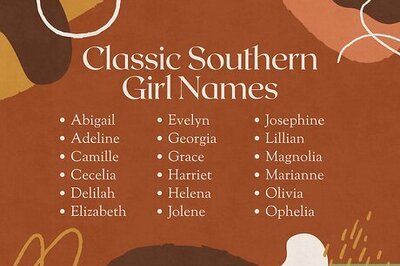
views
PORTLAND, Maine: A disabled Florida woman paid a virtual visit to Maine and left a trail of lawsuits in her wake. Six to be exact.
Deborah Laufer is described in the federal lawsuits as a tester for the purpose of asserting her civil rights and ensuring that places of public accommodation comply with the Americans With Disabilities Act. Her six lawsuits in Maine are among hundreds she has filed in more than a dozen states.
Her lawsuits contend lodging establishments and their online booking services failed to identify accessible rooms, provide an option for booking an accessible room, and provide sufficient information about accessible features.
She contended they discriminated against her by failing to ensure that she could enjoy the same experience as those without disabilities.
Laufer didnt actually stay at any of the properties, at least not in Maine. She visited the websites or third-party online booking sites for properties including the Bar Harbor Grand Hotel and the Inn on St. John in Portland. Both businesses declined comment.
Leeanne Hewey, managing partner at the Maine Woods Inn at Vacationland, in Brewer, which was sued, said her staff is trained to work with people with disabilities to ensure they have an accessible room. She said she’ll make sure that those accessible rooms are reflected on the website.
According to her lawsuits, Laufer has a vision impairment, uses a cane or wheelchair to get around, and has difficulty gripping things. She did not respond to messages seeking comment.
All told, she has filed about 500 lawsuits in 15 different states, said Robert Thorpe, an attorney in Syracuse, New York, whose law firm, Barclay Damon LLP, is defending several hotels and motels against Laufer lawsuits in both New York and Massachusetts.
The Americans with Disabilities Act became law in 1990, before the World Wide Web went live, and the regulations promulgated since then don’t provide adequate guidance to property owners in the era of online reservations systems, he said.
“These businesses are essentially left guessing as to what level of detail is required for online reservation systems to comply with the ADA , he said.
Kim Moody, executive director of Disability Rights Maine, said she hopes Laufer is in it for the right reasons because frivolous lawsuits can create bad law and give all of us people with disabilities a bad name.
The reason for the lawsuits is simple, said Thomas Bacon, one of Laufers attorneys in Florida.
The fact is that nobody complies with the Americans with Disabilities Act until theyre sued, he said. Laufer hopes to travel to Maine one day, he said, though the pandemic makes travel difficult.
Hewey, for her part, said she commended Laufer for ensuring that lodging operators are communicating with disabled guests. Communication is key, she said. We’re open to doing whatever we can to help.”
Disclaimer: This post has been auto-published from an agency feed without any modifications to the text and has not been reviewed by an editor
Read all the Latest News and Breaking News here



















Comments
0 comment